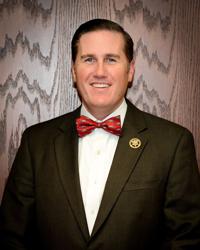Welcome to the “next chapter” of my life… being a voice and an advocate for #mentalhealthawarenessandsuicideprevention, especially pertaining to our younger generation of students and student-athletes.
Getting men to speak up and reach out for help and assistance is one of my passions. Us men need to not suffer in silence or drown our sorrows in alcohol, hang out at bars and strip joints, or get involved with drug use.
Having gone through a recent bout of #depression and #suicidalthoughts myself, I realize now, that I can make a huge difference in the lives of so many by sharing my story, and by sharing various resources I come across as I work in this space. #http://bit.ly/JamesMentalHealthArticle
Michael Gaines, a licensed clinical social worker, sat in bed with a pistol pointed at his head not long after his wife’s death.
“#Suicide,” he recalled. “I remember that. I had friends that I could have reached out to, colleagues that would have been glad to (help). But like most men, we go to our closet. We go to our caves. You know what those caves are — your room, your sports, striptease joints, drugs, alcohol. You run to your caves.”
Gaines spoke Monday evening at a panel discussion addressing an ongoing #mentalhealthcrisis that experts attribute to cultural barriers preventing #African-American men from asking for help before resorting to an irreversible and tragic outcome: taking their own lives. Dozens of people gathered in the Martin Luther King Jr. Community Center on Gus Young Avenue to share their ideas about the underlying aversion to psychological treatment within the black community.
East Baton Rouge Coroner Dr. Beau Clark announced earlier this month that suicides among black males in the parish saw an alarming increase in 2018 — a sevenfold jump over previous years. Recent research has shown the trend is reflected nationwide.
Tonja Myles, a peer support specialist with Capital Area Human Services who helped organize the event, said something needs to be done because oftentimes #blackmen are having the most traumatic experiences — from violence in their homes and neighborhoods to struggling schools, few career opportunities and absent fathers — but nonetheless they are the least likely to seek professional help. Instead, they internalize their #anxieties or turn to negative outlets such as substance abuse and unhealthy relationships.
“The struggle is real for our brothers,” Myles said. “We need to do everything we can in this country and in this community to make things better for a dying breed, and that’s #blackmen.”
Several religious leaders also spoke during the event, cautioning against what has become a common refrain for people experiencing #mentalhealthissues: to “pray it away” or “take it to God.” They said sometimes you also need a professional diagnosis.
Ronaldo Hardy, the pastor of Love Alive Church in Baton Rouge, said his own experiences led him to that realization when he finally decided to speak to a licensed #mentalhealthprofessional.
“That was a very awkward moment for me because I’m black, … I’m a male and I’m a #Christian. And add to that that I’m a pastor,” he said. “And all those elements said that I should just pray about it, and somehow find the strength to navigate this because that’s what I had done so many times before.”

He said too often #African-American boys are raised to be stoic and strong, to isolate themselves during times of struggle. What’s most needed now is creating a space where #blackmen feel comfortable sharing their emotions, with each other or with a counselor, he said.
Experts agreed that what’s most important is acknowledging the serious clinical nature of someone experiencing a potential #mentalhealthcrisis and pointing that person in the direction of treatment.
Frank Campbell, a suicidologist based in Baton Rouge, said the practice of performing psychological autopsies on suicide victims — interviewing their friends and family after their deaths — can shine a light on the decision. That’s a technique the East Baton Rouge coroner’s office plans to adopt in coming months.
“#Suicide’s a taboo topic in every culture,” Campbell said. “Everyone’s afraid to say it out loud. People think it means we’re failing internally. But the reality is that #suicide can visit anybody at any time. … The reality is that wonderful people die by #suicide. And we’ve lost too many.”




